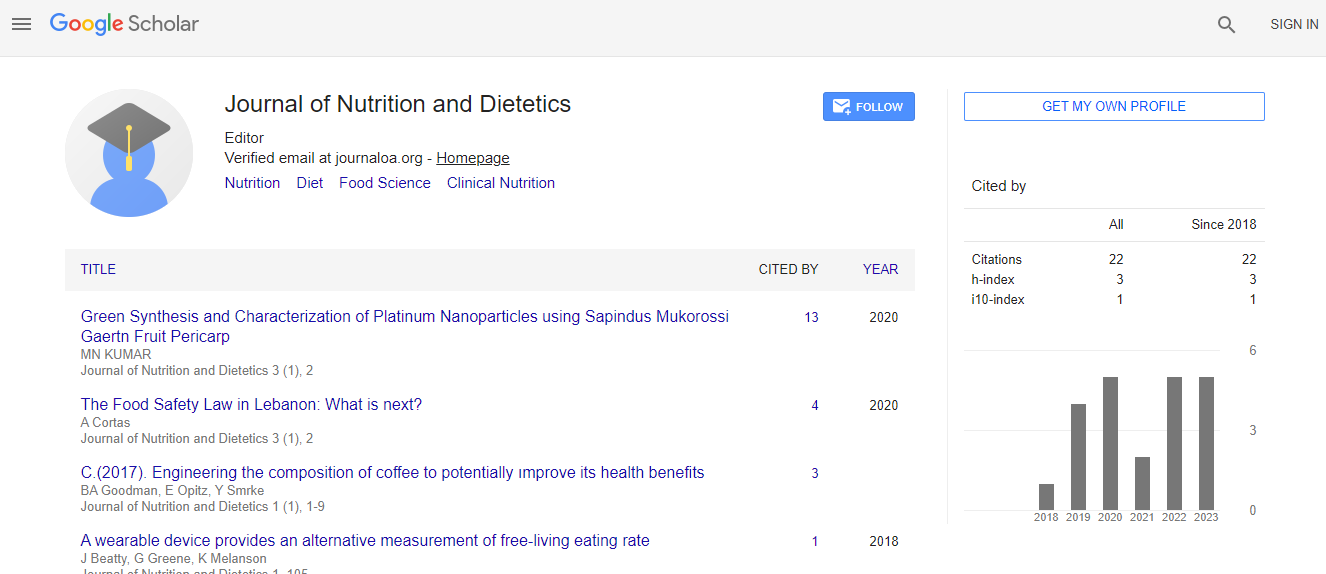Our Group organises 3000+ Global Conferenceseries Events every year across USA, Europe & Asia with support from 1000 more scientific Societies and Publishes 700+ Open Access Journals which contains over 50000 eminent personalities, reputed scientists as editorial board members.
Open Access Journals gaining more Readers and Citations
700 Journals and 15,000,000 Readers Each Journal is getting 25,000+ Readers
Google Scholar citation report
Citations : 22
Journal of Nutrition and Dietetics received 22 citations as per Google Scholar report
Indexed In
- Google Scholar
- ICMJE
Useful Links
Share This Page
Ahmed Bettaieb

Ahmed Bettaieb
Assistant Professor
Nutrition Department
University of Tennessee-Knoxville
USA
Biography
He received his master and Ph.D. in biochemistry and biology at the University of Quebec at Montreal. He then completed his postdoctoral training in Obesitiy and Diabetes research at University of California-Davis. In 2015, he Joined the Department of Nutrition at the University of Tennessee, Knoxville as assistant professor. His current research investigates mechanisms of obesity and diabetes, and their associated downstream consequences on health. He is a well-rounded basic scientist who is particularly well-poised to make significant contributions to the development of novel therapeutics for treating obesity and type 2 diabetes. This is reflected in his strong training record in research and his impressive record of publications and awards. To date, Dr. Bettaieb has 53 publications in the top biomedical journals (i.e., Proceedings of the National Academy of Sciences, J Endocrinology, Gastroenterology, PLoS One, Biochimica Biophysica Acta, Journal of Biological Chemistry, etc).
Research Interest
His research focuses on the molecular and genetic mechanisms contributing to the development of metabolic diseases including obesity, diabetes, chronic inflammation and cardiovascular diseases. The main goal of this research is to exploit novel therapeutic strategies aiming at reducing the overall burden of these diseases. This is achieved using cellular, biochemical, gene knockout and system biology approaches.

 Spanish
Spanish  Chinese
Chinese  Russian
Russian  German
German  French
French  Japanese
Japanese  Portuguese
Portuguese  Hindi
Hindi 